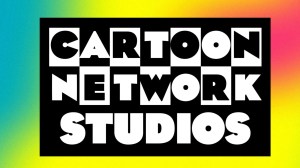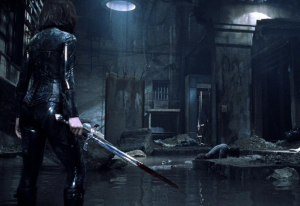Tabletop roleplaying fans are having flashbacks to the early 2010s, as fans spent a good chunk of the weekend debating over Dungeons & Dragons and Pathfinder’s current editions. Last week, various corners of the tabletop roleplaying game Internet spent their weekend discussing a new but very familiar topic – namely, the market dominance of Dungeons & Dragons Fifth Edition and the stalwarts who believe its main rival Pathfinder Second Edition is a superior game. The debate had undertones of a similar argument that occurred throughout the “Edition Wars,” a period of time when Pathfinder briefly overtook Dungeons & Dragons in popularity.
Videos by ComicBook.com
For those unfamiliar with the ancient history of tabletop roleplaying games (AKA about 10-15 years ago), Dungeons & Dragons and Pathfinder used to be major rivals competing for the same groups of fans. Paizo created Pathfinder as an alternative for Dungeons & Dragons fans unhappy about the game’s switch from the long-running “3.5 Edition” rules to its unwieldy 4th Edition ruleset. Pathfinder originally used a modified version of D&D 3.5 rules that featured a mix of familiar classes, spells and monsters along with a brand new expansive setting (called Golarion) and a ton of new rules and systems that evolved over time. While Pathfinder briefly eclipsed Dungeons & Dragons in popularity between 2011 and 2014, Dungeons & Dragons re-took the sales crown with the release of its Fifth Edition rules and has become a juggernaut in terms of market share and overall popularity. Meanwhile, Pathfinder released a new version of its rules back in 2019 that further separated it from its D&D origins while retaining the immense character customization options that allows players to create a nearly infinite number of character builds.
The debate seems to have started when a prominent D&D content creator (who we won’t name here, as they don’t deserve any more hassle) commented how Pathfinder fans always make aggressive comments about the game in their Dungeons & Dragons video comment sections. What followed was a debate about the roles Dungeons & Dragons Fifth Edition and Pathfinder currently have in the TTRPG community, along with how content creators and fans engage with Dungeons & Dragons and other games. There’s no real central “theme” to the discourse, other than some people wish that more people played Pathfinder 2E, while others want to talk about the wider place that fantasy-themed roleplaying games have in today’s TTRPG space.
There are a couple of layers to this debate: One that ties into the weirdly contentious history between Dungeons & Dragons and Pathfinder, and one that ties into the overall dominance of Dungeons & Dragons today. Many Pathfinder fans remember the “rivalry” between D&D and Pathfinder and see the glut of 5E products trying to provide further customization to character creation or additional combat options as a poor substitute for Pathfinder 2E, which does all that and more. And while the average TTRPG fan from 10 years ago likely had heard of Pathfinder, the average D&D player today likely hasn’t, which simply speaks to how mainstream D&D is compared to how it was a decade ago.
The current discourse also touches on how dominant Dungeons & Dragons is in today’s tabletop roleplaying game space. The reality is that Dungeons & Dragons Fifth Edition is likely the most popular tabletop roleplaying game ever made, even more so than previous editions of the games. 5E has brought millions of new players to tabletop roleplaying games. Many of those newer players have never heard of other roleplaying games, even popular ones like Vampire: The Masquerade or Cyberpunk or Pathfinder. Dungeons & Dragons holds a dominant spot in the TTRPG marketplace, and that leads many publishers to release rulebooks that use 5E as a foundation simply beacause a 5E book is likely to get more eyes on it than an original game system or a game system made using another system. Many content creators and publishers see 5E as their main path to survival and relevance even if it’s not their preferred gaming system.
There’s also a weird bit of gatekeeping that surrounds this entire debate. There is a contingent of folks who believe that Dungeons & Dragons 5E is an inherently bad system and delight in telling people who enjoy it to play a different game. Those people’s opinions mix in with people who don’t like how 5E seemingly overshadows every other game system, even the ones that might tell a certain kind of story in a better way and suddenly the discourse is tinged with a toxic element, one that makes the debate frankly un-fun.
The Edition Wars aren’t coming back anytime soon, but this weekend’s debate highlights some of the challenges faced by fans of tabletop roleplaying games today. Pathfinder is a great game. Dungeons & Dragons is a great game. Both offer players different ways to tell a plethora of different fantasy-themed stories. And there are lots of other great tabletop roleplaying games out there as well, all of which deserve their time to shine and receive attention. A healthy tabletop roleplaying game space is one that allows multiple kinds of games to flourish, whether it’s a popular game like Dungeons & Dragons or a one-page RPG that only exists on itch.io. Just remember that your gaming experience is not necessarily the same as someone else’s, and that talking about games should be fun instead of confrontational.








